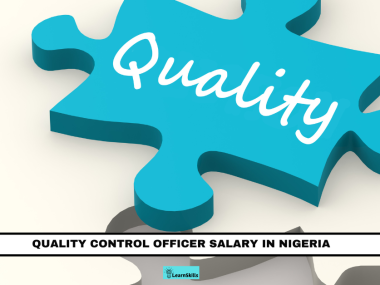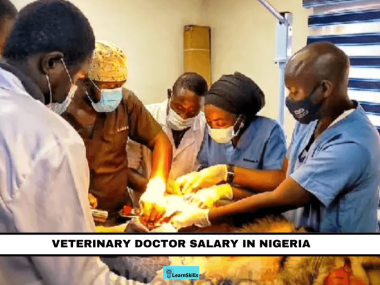In Nigeria, medicine and surgery offer a range of salaries depending on specialization and experience. The average salary for medical doctors is around NGN 250,000 monthly. Meanwhile, specialists like orthopedic surgeons can earn more, averaging about NGN 1,410,000 annually.
As you explore a healthcare career, it’s vital to consider factors like location and the type of medical practice you wish to pursue.
Some specializations, such as plastic surgery and dermatology, command higher salaries due to their unique skill sets and demand. Understanding these dynamics can help you make informed decisions about your future in medicine.
Overview of Medicine and Surgery in Nigeria
In Nigeria, medicine and surgery are critical fields within the healthcare system. The educational pathways and the overall infrastructure of hospitals influence the quality of health services in the country.
Healthcare System and Hospitals
Nigeria’s healthcare system comprises both public and private sectors. Public health services are often underfunded and can struggle with resources. In contrast, private hospitals typically offer better facilities and services at a higher cost.
Many hospitals are equipped to handle general healthcare, while specialized hospitals focus on areas like surgery, pediatrics, and obstetrics. Some hospitals participate in medical research, contributing to advancements in public health.
The government aims to improve health services by increasing funding and developing more healthcare facilities.
Despite challenges, healthcare professionals strive to provide quality care to patients in the nation.
Qualification Pathways
To become a medical doctor in Nigeria, you must complete a Bachelor of Medicine, Bachelor of Surgery (MBBS) degree. This five to six-year program is offered at various universities across the country.
After obtaining your MBBS, you will undergo a mandatory one-year internship in a clinical setting. This experience allows you to apply your knowledge in real-world scenarios.
You must register with the Nigeria Medical and Dental Council to practice. Continuing education is essential for specialization. Many doctors pursue postgraduate degrees in surgery, internal medicine, or public health, enhancing their expertise and career prospects.
Salaries for Medical Doctors in Nigeria
Medical doctor salaries in Nigeria vary widely based on experience, location, and whether you work in the public or private sector.
Salary Range by Experience
The salary of a medical doctor in Nigeria changes with their experience level.
- Entry-Level Doctors: A fresh graduate can earn around NGN 250,000 to NGN 300,000 monthly.
- Mid-Level Experience: With a few years of practice, your salary can rise between NGN 350,000 and NGN 500,000 monthly.
- Senior Doctors: Those with extensive experience in specialized fields can earn up to NGN 1,000,000 or more monthly.
These figures indicate how important experience is in determining salary in the medical profession.
Regional Salary Variances
Salaries for medical doctors in Nigeria can also differ based on the region.
- Urban Areas: Doctors in cities like Lagos and Abuja earn higher salaries, often between NGN 500,000 and NGN 1,200,000 monthly.
- Rural Areas: In contrast, doctors in rural areas might earn around NGN 250,000 to NGN 400,000, reflecting fewer resources and lesser demand.
The cost of living and demand for healthcare services are key factors affecting these regional variances.
Private vs Public Sector Pay
The type of sector you choose to work in is crucial to your salary.
- Public Sector: Salaries for public hospital doctors generally range from NGN 250,000 to NGN 600,000 a month, depending on their experience and position.
- Private Sector: Salaries can be higher, frequently exceeding NGN 1,000,000 monthly for specialists and experienced physicians.
Working in the private sector often means more opportunities for higher pay, but it may come with increased responsibilities and a faster-paced environment.
Additional Compensation Considerations
When considering a career in medicine and surgery in Nigeria, it’s essential to look beyond basic salaries. Additional compensation can include bonuses, benefits, and allowances that significantly enhance your total income and living conditions.
Bonuses and Benefits
In Nigeria, medical professionals often receive various bonuses and additional benefits. These can take different forms, such as performance bonuses, annual bonuses, and incentives for extra responsibilities.
- Performance Bonuses: You might earn bonuses based on your effectiveness and patient outcomes.
- Health Insurance: Many hospitals provide health insurance for you and your family, which can lower your expenses.
- Continuing Education: Some employers cover the costs of further training or professional development, keeping you updated with medical advancements.
These bonuses and benefits are significant in your overall job satisfaction and financial well-being.
Property and Housing Allowances
Housing costs can be a significant part of your budget, especially in urban areas. Many hospitals and health services in Nigeria offer property and housing allowances.
- Housing Allowance: This can be a monthly payment that helps cover rent or mortgage costs, easing financial stress.
- Relocation Assistance: If you relocate, some employers offer support to help you find suitable housing.
Additionally, some districts may provide staff accommodations. Access to these allowances can improve your living situation and help you focus on your medical practice without worrying about housing issues.
Career Prospects and Job Availability
In Nigeria, the landscape for careers in medicine and surgery is dynamic. With a growing population and increasing healthcare needs, job opportunities are expanding. Understanding where you can work and how you can advance is vital for success in this field.
Employment Sectors
You can find healthcare jobs in various sectors. Hospitals, clinics, and private practices are the most common places where doctors work. Government health institutions hire many doctors to improve public health.
Additional sectors include:
- Research Institutions: Focus on medical advancements.
- Non-Governmental Organizations (NGOs): Address medical needs in communities.
- Telemedicine: Emerging fields like remote consultations are gaining traction.
Each sector offers unique benefits and working conditions. Understanding these options helps you choose the right path for your medical career.
Career Advancement Opportunities
As you grow in your medical career, numerous advancement paths are available. You might start as a general practitioner and later specialize in areas like surgery or pediatrics. Specialization can significantly increase your earning potential.
Participating in continuous education is essential. You can attend workshops and seminars to stay updated with advancements.
Networking is also key. Building relationships with fellow health professionals can lead to new job opportunities and collaborations.
Teamwork is emphasized in hospitals, as collaborative efforts often lead to better patient outcomes. Engaging in multidisciplinary teams can enhance your skills and increase your visibility in the field.
Skill Requirements and Professional Development
Specific skills and ongoing development are essential to succeed in Nigeria’s medical and surgical fields. These competencies ensure high-quality patient care, staying updated with advancements, and collaborating effectively with other healthcare professionals.
Essential Skills for Success
Critical thinking is vital in the medical field. You must analyze patient conditions, interpret test results, and make sound decisions regarding diagnosis and treatment.
Communication skills are equally important. You will need to explain medical terms clearly to patients and their families. Effective communication fosters trust and helps patients understand their health conditions.
You should also develop strong time management skills. Routines can be busy and unpredictable. Prioritizing tasks efficiently can improve patient outcomes and your productivity.
Additionally, collaboration with other healthcare team members is key. Whether working with nurses, specialists, or mental health professionals, teamwork enhances the level of care.
Continuing Education and Training
Continuing education is essential for keeping your skills current. Attend workshops, conferences, and seminars on advancements in medicine and surgery. These events boost your knowledge and connect you with peers in your field.
Pursue advanced certifications relevant to your specialty. For instance, in mental health care, gaining extra qualifications can open doors for advanced roles.
Online courses and training programs also offer flexible options for learning. Many organizations offer resources targeting specific skills. Embrace opportunities for hands-on training, as real-world experience is invaluable.
Stay informed of changes in healthcare regulations and practices to ensure you provide the best patient care possible.










